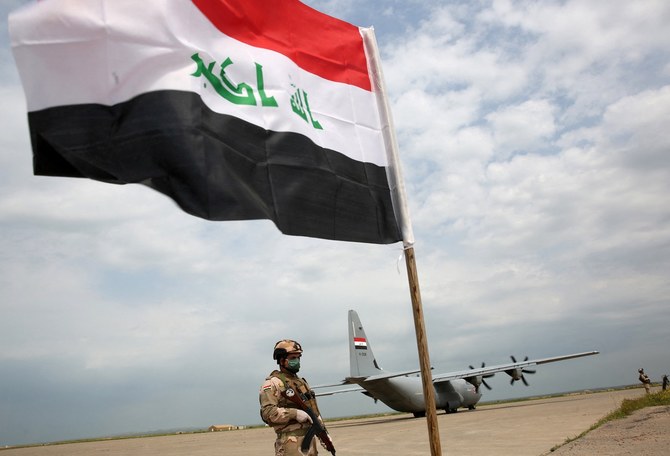State Department says US did not notify Iraq about strikes despite Kirby saying otherwise

An Iraqi soldier walks at the Qayyarah air base, where US-led troops in 2017 had helped Iraqis plan out the fight against the Islamic State in nearby Mosul in northern Iraq
Washington – The United States did not notify the Iraqi government in advance of recent strikes against pro-Iranian targets in the country, the State Department said Monday, clarifying White House statements suggesting otherwise.
“There was not a pre-notification, we informed the Iraqis immediately after the strikes occurred,” State Department deputy spokesman Vedant Patel told reporters.
The United States carried out strikes in Syria and Iraq on Friday against targets of elite Iranian forces and pro-Iranian armed groups.
The strikes were in retaliation for an attack on January 28 that killed three American soldiers in Jordan, near the Iraqi and Syrian borders. Washington has blamed the attack on forces aligned with Tehran.
“The Iraqi government, like every country in the region, understood that there would be a response after the deaths of our soldiers,” Patel added.
Regional tensions are already running high in the face of the Israel-Hamas war in Gaza, and both Iraq and Syria condemned the strikes, with Baghdad denouncing “a violation of Iraqi sovereignty” and warning of “disastrous consequences” for the country and beyond.
White House National Security Council spokesman John Kirby had told reporters on Friday evening that Washington “did inform the Iraqi government prior to the strikes,” angering Baghdad.
“I responded with information that I had been provided at the time,” Kirby said on Monday.
“It was not as specific as it could have been, and I regret any confusion caused.
“That said, we had made no secret –- both to Iraqi officials and in public channels -– that we would respond to the attacks on our troops. And, we did, in fact, officially notify Iraq, as appropriate with standard procedure,” he added.
Anger over Israel’s devastating campaign in Gaza — which began after an unprecedented Hamas attack on October 7 — has grown across the Middle East, stoking violence involving Iran-backed groups in Lebanon, Iraq, Syria and Yemen.
Tensions between the US and Iraqi governments have deepened in recent months after Washington carried out previous strikes in response to a flurry of attacks on US-led troops since the Israel-Hamas war began.
US and allied troops in the region have been attacked more than 165 times since mid-October, mostly in Iraq and Syria, but the Jordan deaths were the first from hostile fire during that period.
A US-led coalition was set up in 2014 to fight the Islamic State group after it seized swaths of Iraq and Syria, with roughly 2,500 troops in Iraq and about 900 in Syria as part of the effort.
Washington and Baghdad opened talks on the future of the US-led troop presence late last month after repeated demands from Iraqi Prime Minister Mohamed Shia Al-Sudani for a timetable for their withdrawal.
